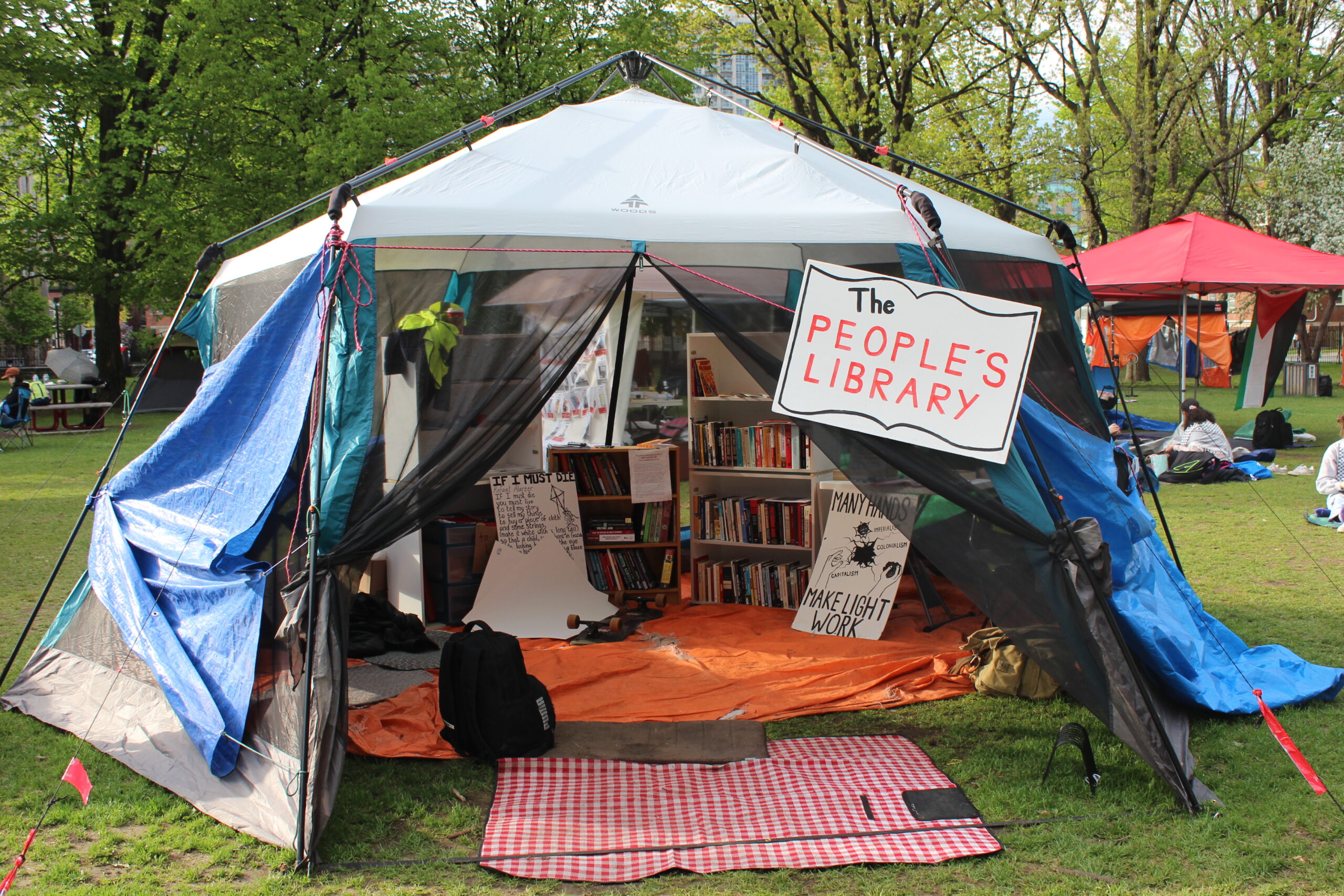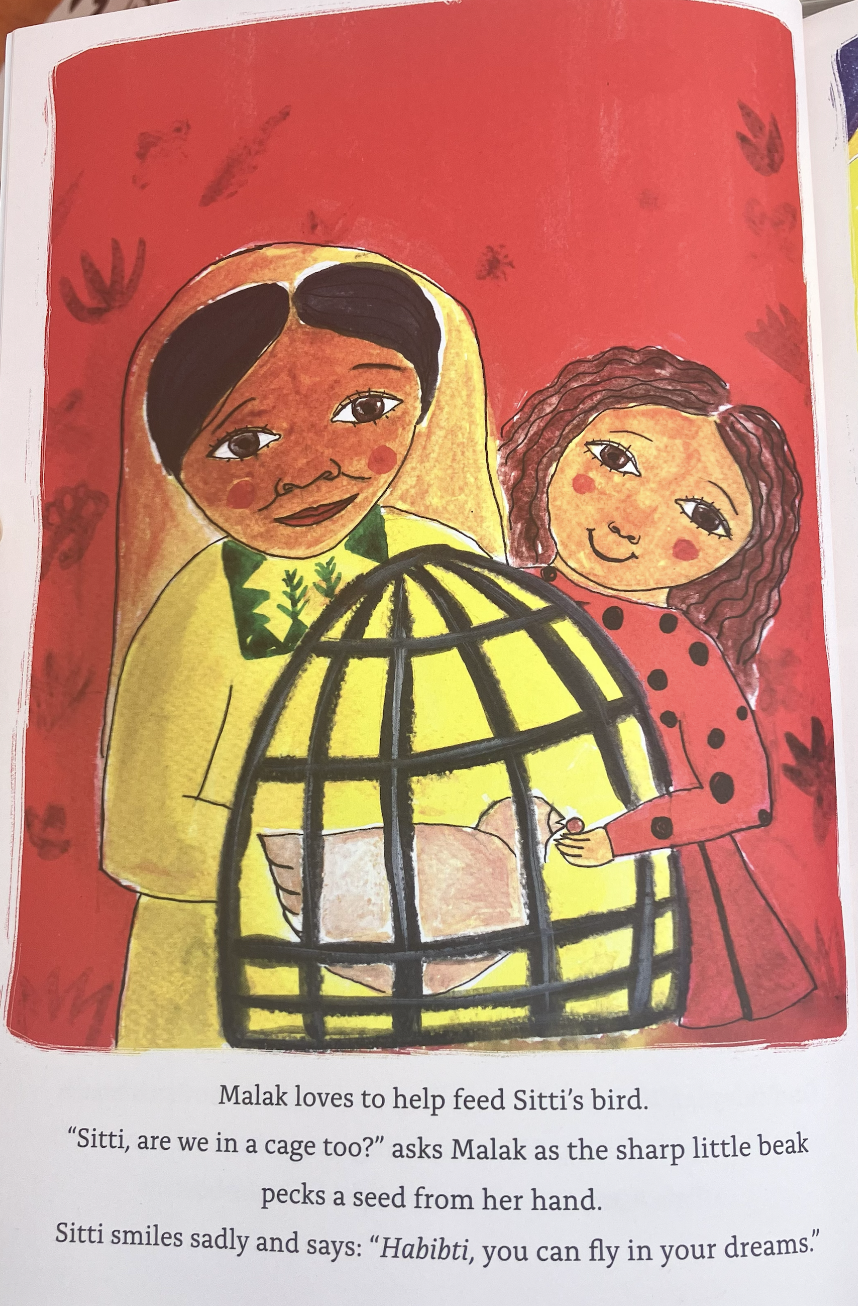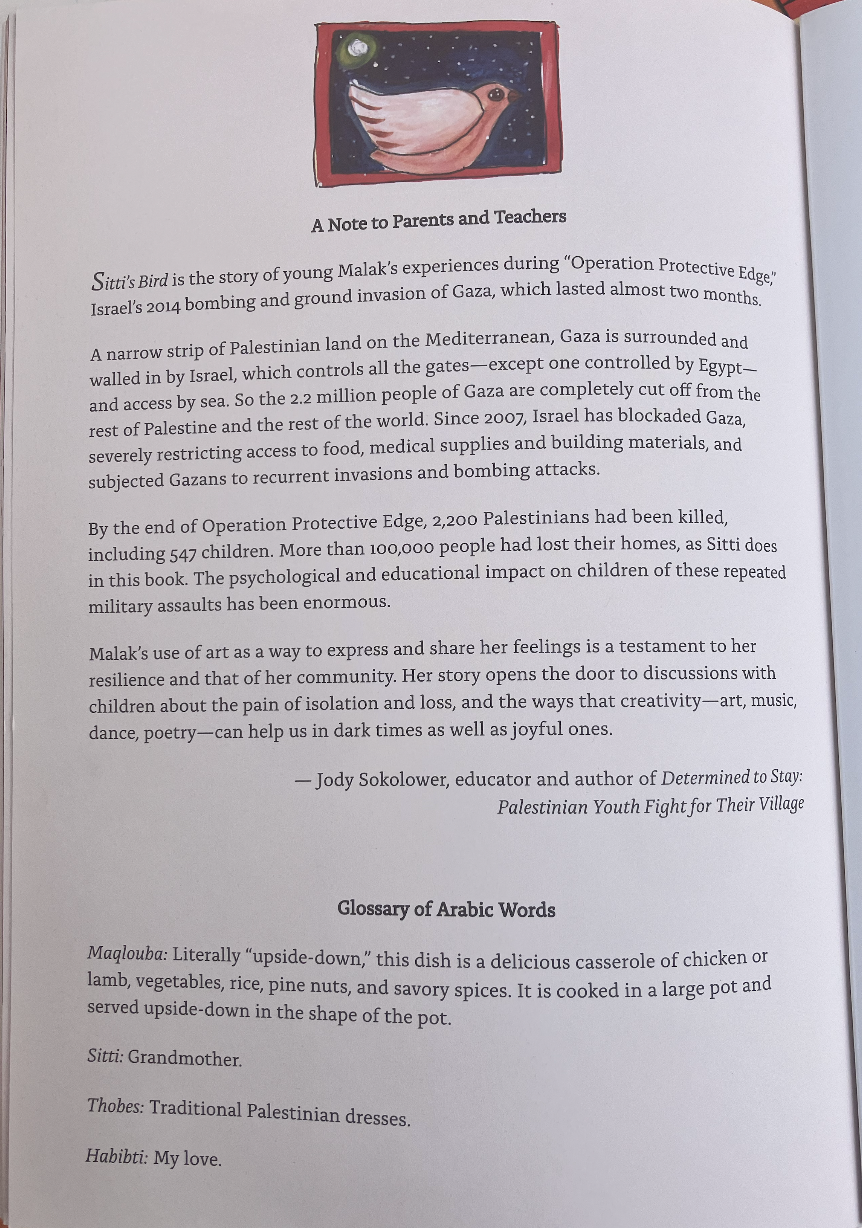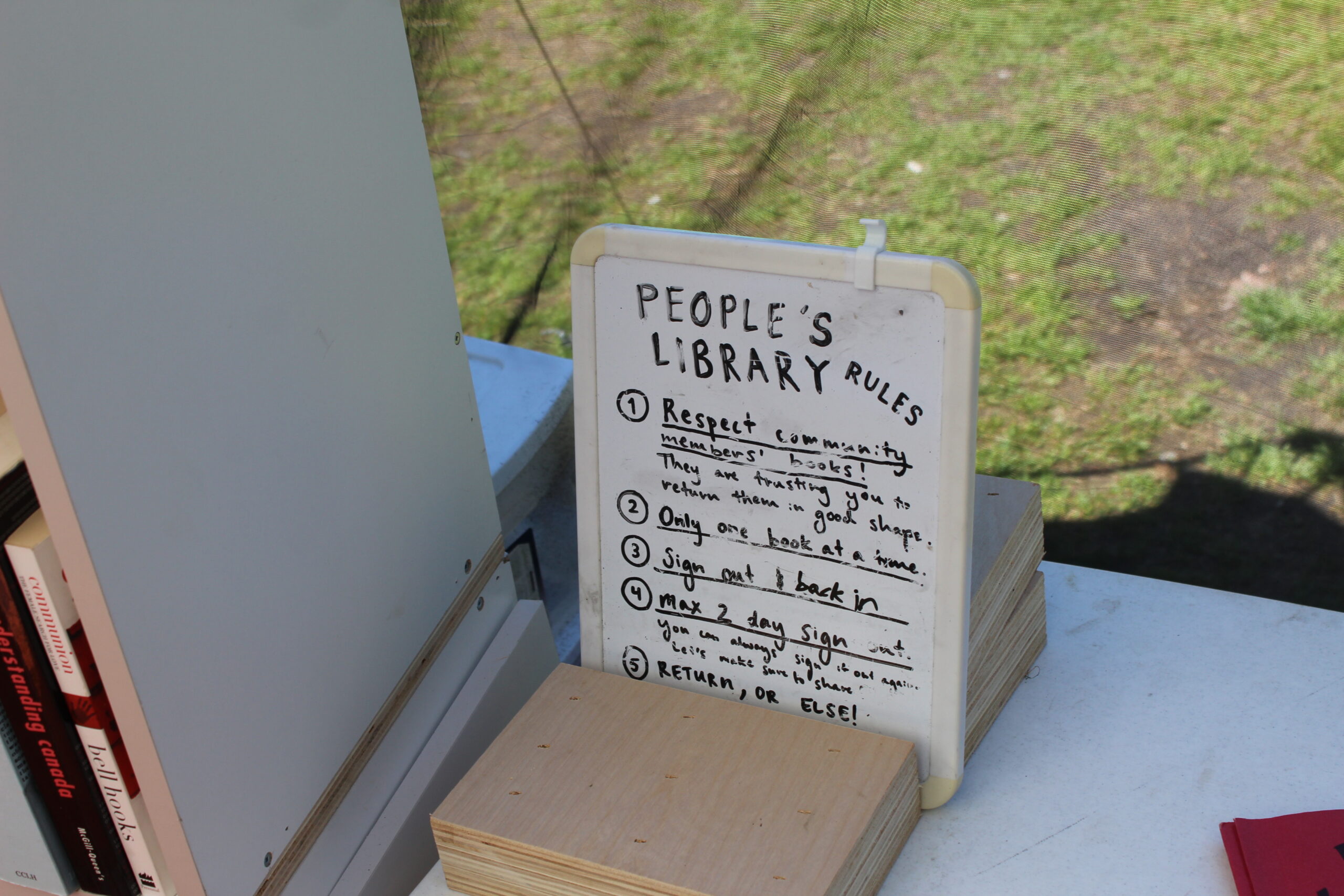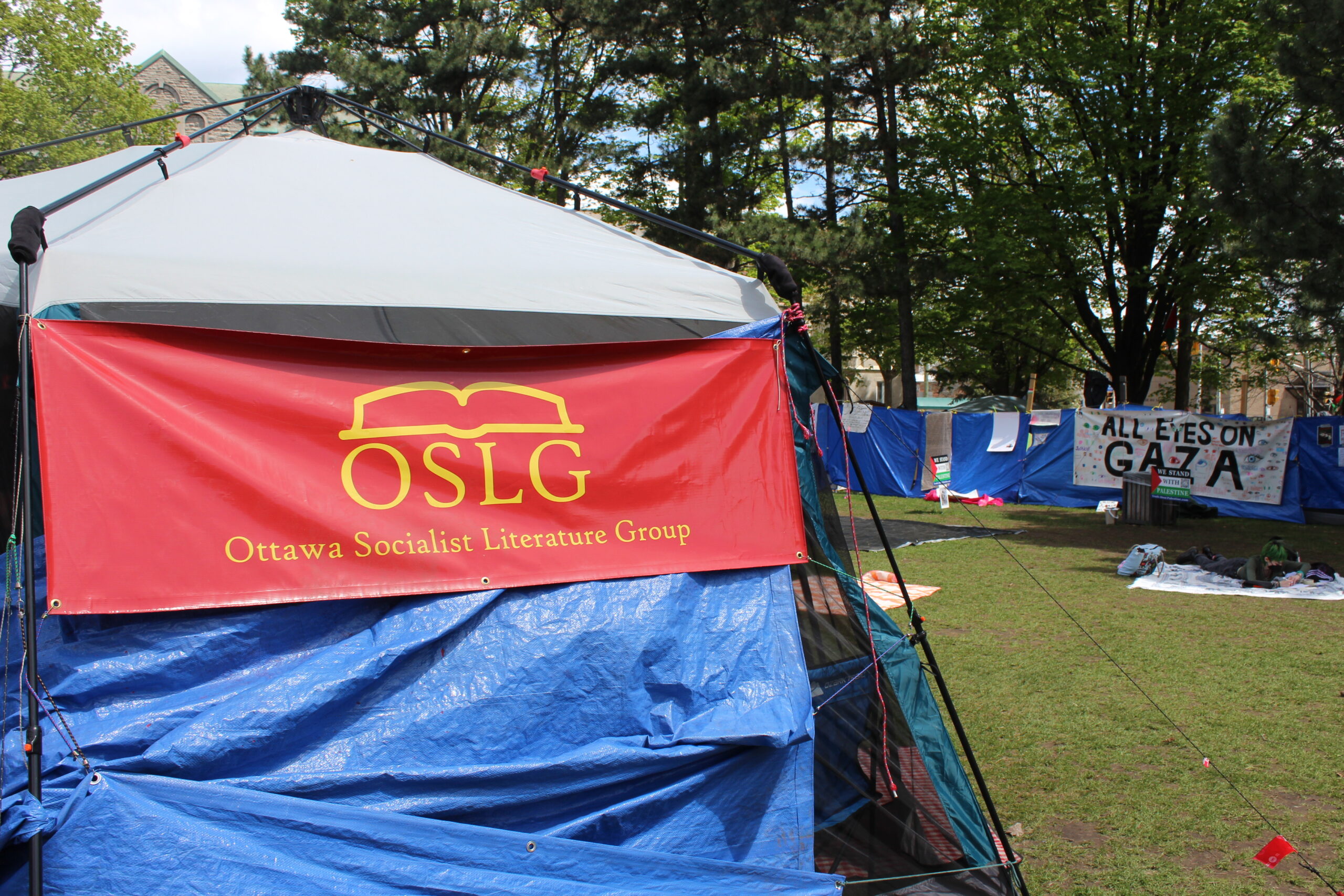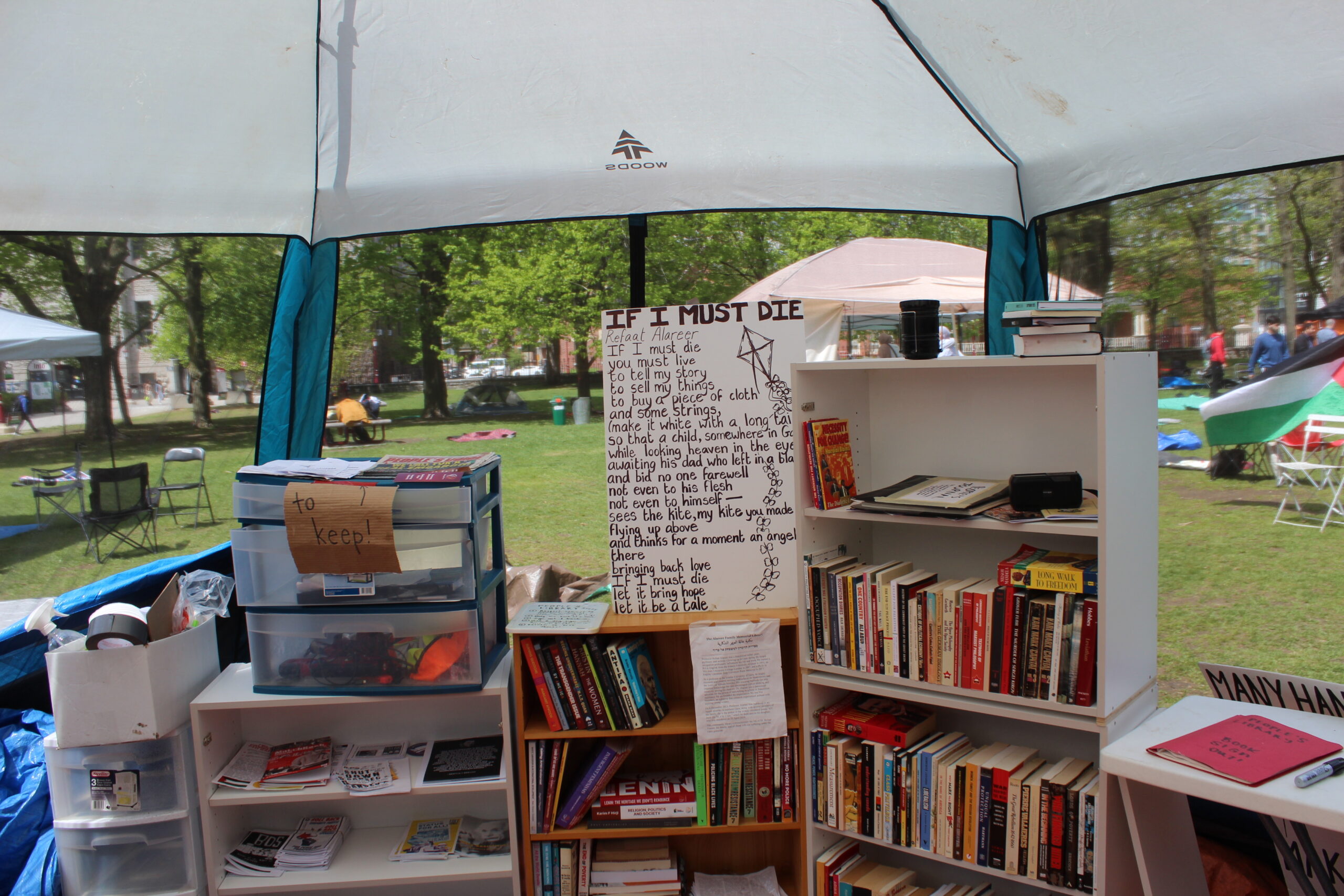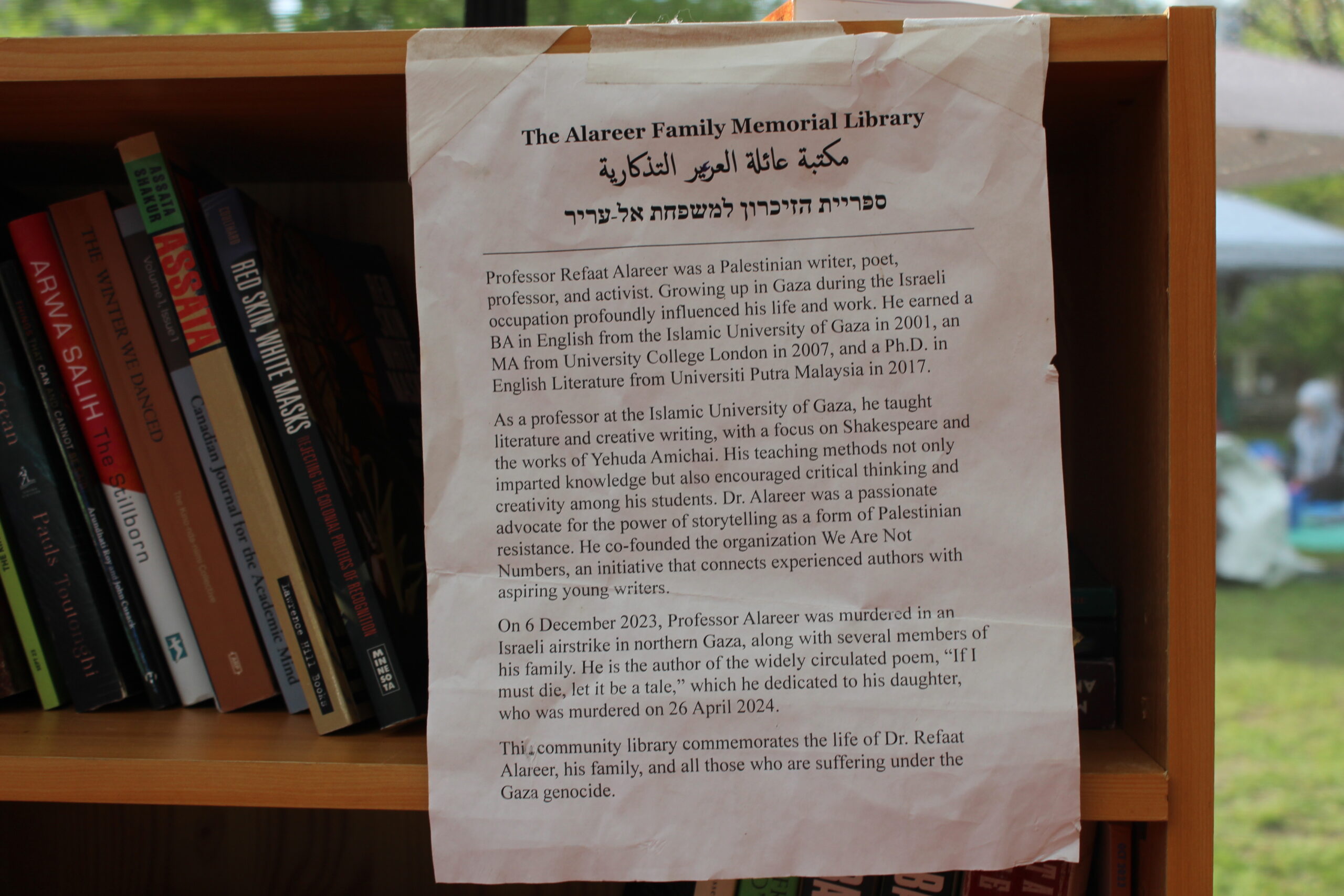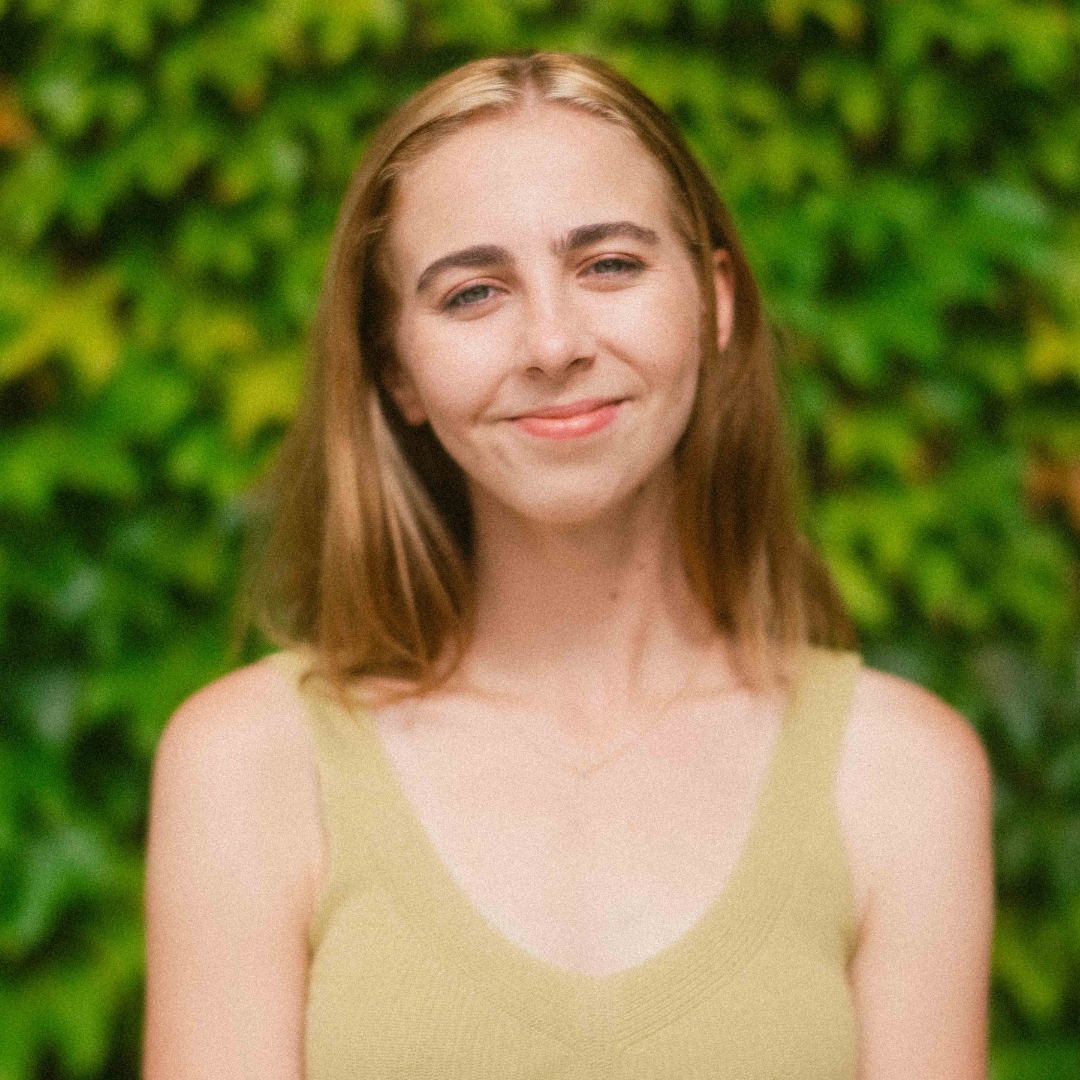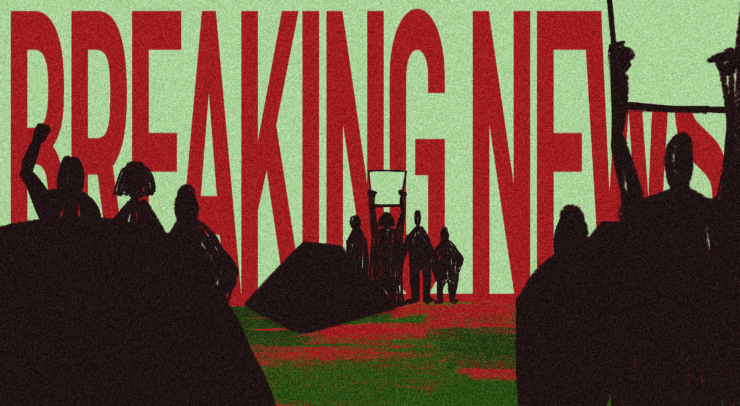I spent much of the afternoon of May 12 in the Alareer family memorial Library; here’s what I saw:
Two shelves lined with books and a third with pamphlets stand in one of the few tents a few meters away from the tarp-wall-perimeter of the encampment on the U of O’s Tabaret Lawn.
First referred to as the People’s Library, the tent now stands as a memorial library for the Alareer family.
Rafaat Alareer was a Poet and professor of Literature and creative writing at the Islamic University of Gaza before he was killed in an Israeli airstrike on Dec. 6, 2023. His memory has fueled many of the solidarity encampments at universities around the world including the first faculty-led encampment at the New School in New York City.
On April 26 2024 more members of the Alareer family were killed by another Israeli airstrike. Rafaat’s eldest daughter Shaima Refaat Alareer, her husband and their two-month-old son were killed while “sheltering in the building of Global Communities, an international relief charity.”
Shortly before her death Shaima shared a message via Facebook addressing her deceased father: “I have a beautiful news for you, I wish I could convey it to you while you are in front of me, I present to you your first grandchild. Do you know, my father, that you have become a grandfather? This is your grandson Abd al-Rahman whom I have long imagined you carrying, but I never imagined that I would lose you early even before you see him.”
In Ottawa, the encampment on Tabaret Lawn began April 29 and is now on the onset of a third week. The library started as a stack of books in the check-in tent and had its own tent by May 5th.
Started by the Ottawa Socialist Literature Group (OSLG), the books are available for anyone participating in the protest to borrow. Books available to borrow include “The Question of Palestine” by Edward W. Said, “One Country” by Ali Abunimah, “Long Walk to Freedom” by Nelson Mandela, and many more touching on Marxism, imperialism, and resistance movements.
On display in the tent is Refaat Alareeer’s poem: “If I must die” which tells his surviving family to sell his things and make a kite,
“so that a child, somewhere in Gaza/ while looking heaven in the eye / awaiting his dad who left in a blaze— / and bid no one farewell / not even to his flesh / not even to himself— / sees the kite, my kite you made, flying up above / and thinks for a moment an angel is there / bringing back love”
I spent most of the afternoon of May 12 in the Alareer family memorial Library, here’s what I saw. Folks trickled in and out throughout the day picking up pamphlets, sharing thoughts on what they’ve read recently and sitting down to read.
Just after 4 p.m. a man and two children stick their heads in and introduce themselves, the man shares that the two children are from Gaza and they are here thanking people for supporting their cause. “Can I give them something?” one of the boys asks, “What do you have for them?” the man asks “I didn’t bring anything” says the boy, tugging at an empty pocket. “You brought your company!” says someone sitting in the tent. They move on to continue thanking protest participants.
The library was scheduled to host a discussion group at 5 p.m, conflicting with scheduled speeches. Two OSLG volunteers discussed possibly moving the discussion group to another day or time, deciding to wait until 5 p.m. to evaluate turn-out. Just after 5 p.m. those gathered (six people) decided to wait for another day. Once eight people had assembled the group discussed when would work better.
Someone announces that the first speaker of the day was running late and the group quickly talks through the first part of Marx’s “Capital”. The group’s discussion lasted for roughly 20 minutes before stopping to allow participants to join the Palestine-101 teach-in. As the speaker began addressing the larger crowd, occupents of the tent headed out to listen.
Between speeches I read one of the few children’s books in the tent: “Sitti’s Bird; a Gaza Story,” the story of Malak, a young girl who lived through Operation Protective Edge which killed more than 2,200 Palestinians in July and August of 2014.

